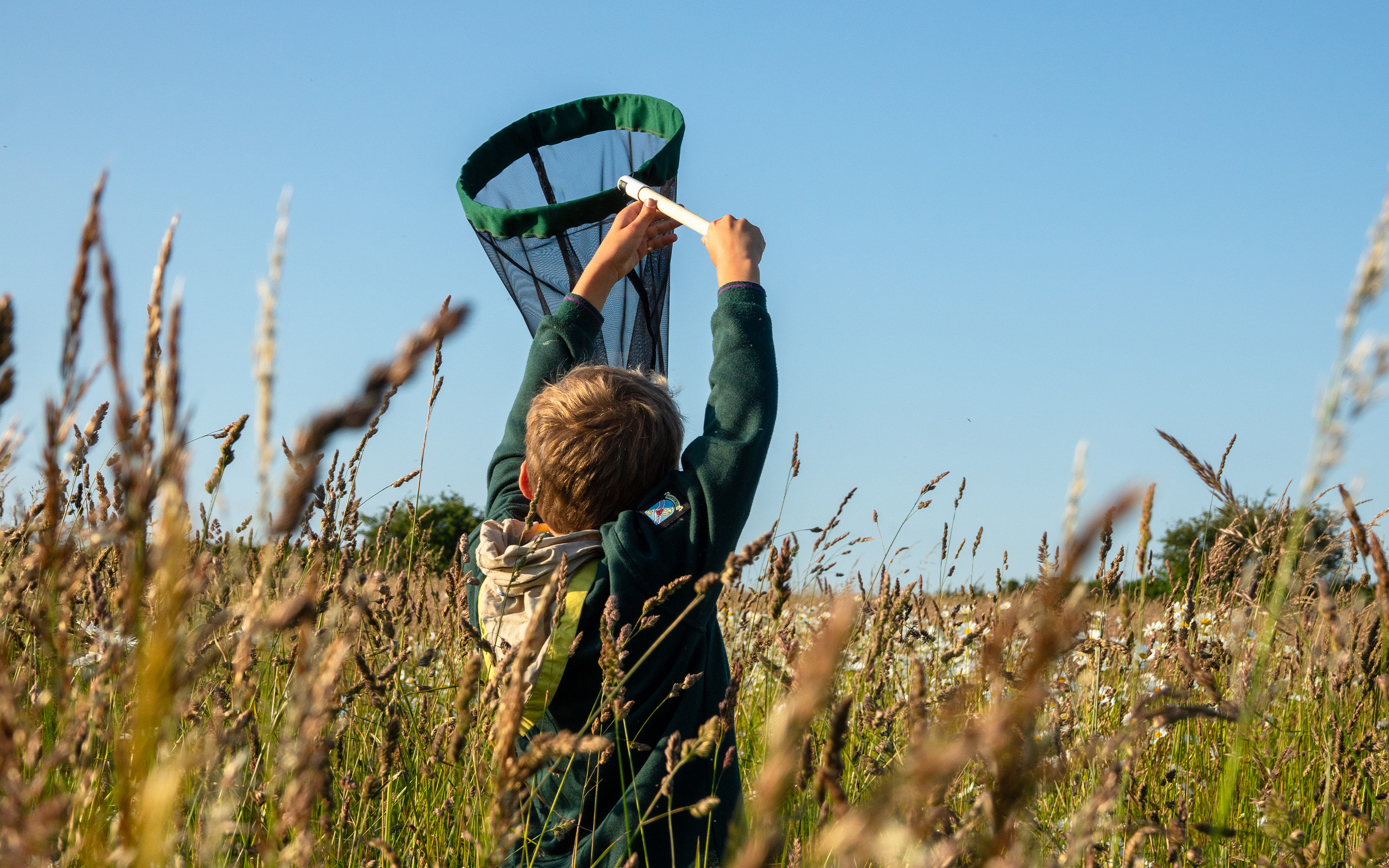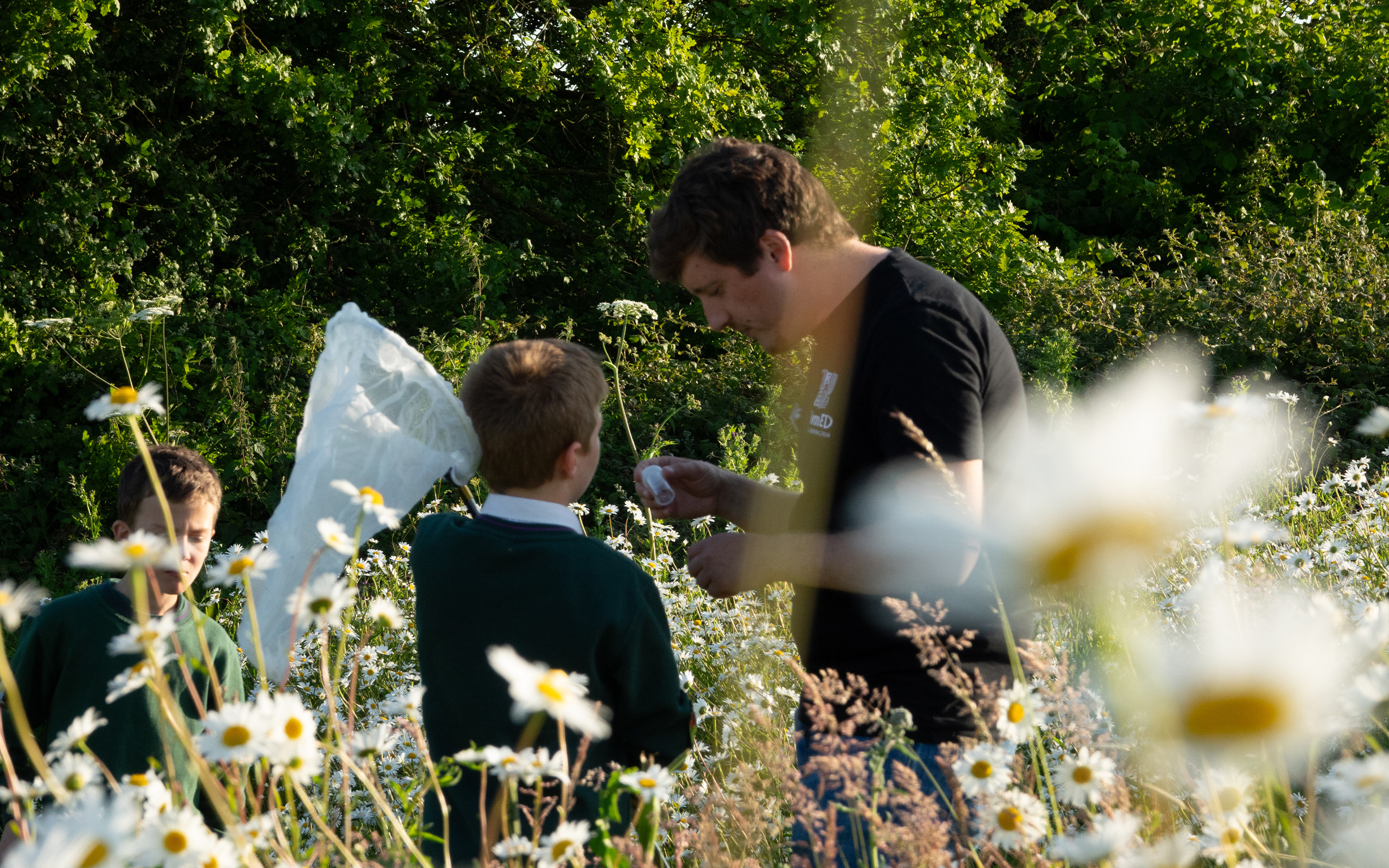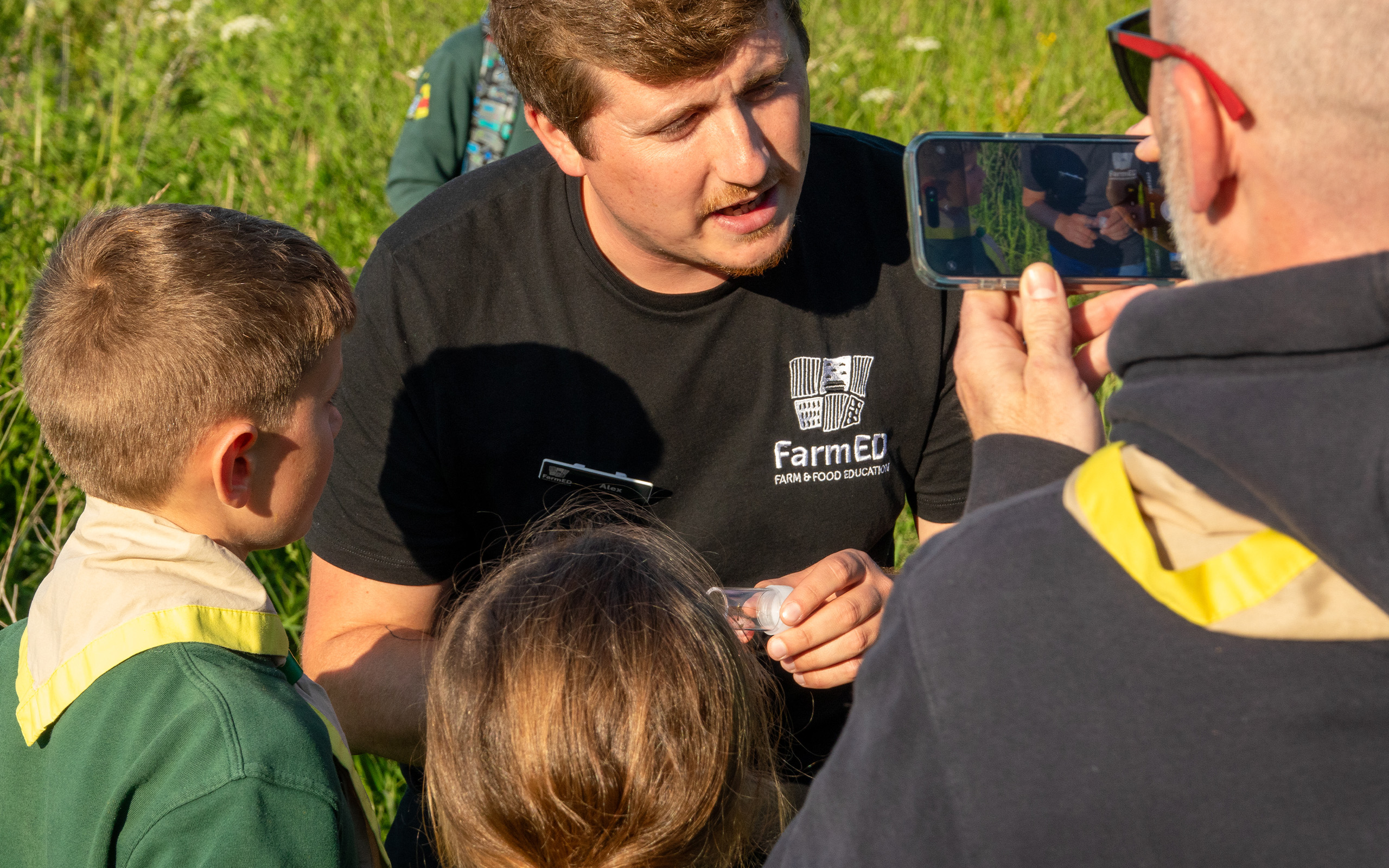Join us on a Minibeast Safari!
Jun 02, 2025

FarmED’s storyteller, Fiona Mountain, joins the Minibeast Safari...
It’s the start of Summer and time to think about booking onto one of FarmED’s hugely popular Minibeast Safaris, combining science with discovery and plenty of fun.
‘I want youngsters to get excited about insects the way I do, rather than being scared of them or thinking they’re a bit gross,’ explained FarmED’s resident entomologist, Alex Dye, who leads the Minibeast Safaris.
The last Safari, held on a sunny, blustery day earlier this spring, attracted a group of twenty children, aged between three and nine years old, who came along with parents and grandparents. To get them started, they were given fun worksheets with questions like - ‘what am I?’ and ‘what do I do?’ - before being handed kits of nets and plastic tubs.
We headed to the sheltered heritage orchard and the children were given some ground rules. ‘Let the goats be. Don’t pick up anything with yellow stripes that might sting or bite, and don’t touch hairy caterpillars because you might be allergic to them.’
After that, off they went to see what they could identify.
‘I like to let them go freestyle and just find stuff,’ says Alex, as the kids and their parents got busy in the hedgerows.
They found plenty to look at, including lots of Plant Bugs. Alex, who used to study these bugs at Rothamstead Research, explained how they use their tongue to drink juice from the plant.
We also saw yellow Dung Flies, prompting Alex to explain that dung means poo, and comes from the sheep that graze in the fields as part of a regenerative agriculture system practiced at FarmED, which creates habitats for more beneficial insects.

We saw Ground Beetles that ‘eat all the nasty pests that eat our crops,’ and lots of impressively named Wolf Spiders which ‘don’t make webs but run to catch prey’. The children were fascinated by Frog Hoppers, when Alex explained how ‘they produce cuckoo spit from their bottoms and then live in it.’ Alex also explained how ‘spiders in general eat prey by injecting their insides to make them into a sort of fruit shoot to suck up.’
There were Bufftailed Bumblebees, Snail Killer Flies, Rove Beetles that are ‘built for speed and eating small bugs and plants’ and Fungus Flies that ‘eat mould, doing the recycling for us’, millipedes and centipedes and a polydesmid with multiple segments, ‘like a suit of armour.’ A pretty brown Speckled Wood Butterfly, was flitting about near the woodland and there was lots of excitement when we found a Drinker Moth caterpillar, which Alex picked up, letting it lay, curled and furry in the palm of his hand, for everyone to get a closer look.
We were careful to avoid a bird's nest in the long grass and we put ants back where we found them so that they could, ‘find their way back to their nest.’
The goats, whose job at the farm is conservation grazing, came to say hello too.
One little boy who loves larger animals, left wanting a bug book and a little girl said that the most interesting thing she’d learned was how to’ tell the difference between a millipede and centipede and a male and female spider.’

Adults seemed to enjoy the morning as much as the children. ‘It’s like a little piece of heaven here,’ said one of the mums. ‘You leave behind all your troubles. It’s a different world.’
‘It’s great to get them off their iPads’, one of the grandmothers commented. ‘They complain about going out, but once they get here, they just love it.’
There are several Safaris scheduled for the summer holidays, when they will start in the wildflower meadow and take in the natural flood management where you are likely to spot dragonflies, butterflies and pond skaters.
These fun events usually book up fast, so secure your place as soon as possible:
Book Here: https://www.farm-ed.co.uk/whats-on
Recent news items




